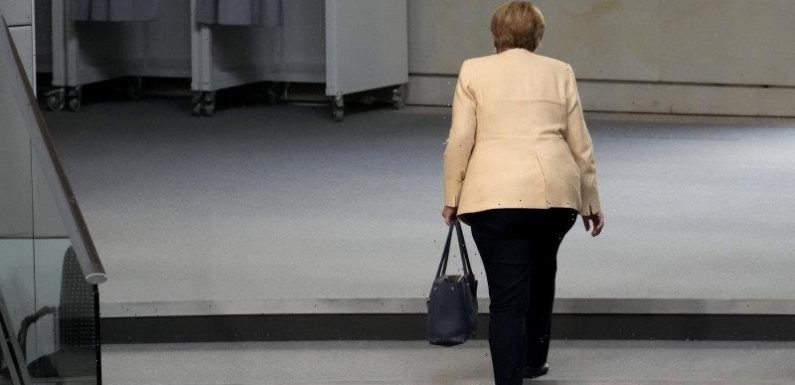
Berlin: For the first time in 16 years, Germany will be run by a man.
For the first time also, the incoming cabinet will have more women than ever before. Half, to be exact.
Olaf Scholz, the incoming Chancellor replacing Angela Merkel, kept his election promise to appoint as many women as men to his government — and not only that, women will run all the briefs related to security and diplomacy.
Incoming German chancellor Olaf Scholz, left, with part of his cabinet including: Nancy Faeser, interior minister, Christine Lambrecht, defence minister and Klara Geywitz, construction minister, in Berlin on Monday.Credit:Bloomberg
The country will have its first female foreign minister and its first female interior minister. It will also get its third female defence minister in a row.
“Security will lie in the hands of strong women in this government,” Scholz said on Monday (Tuesday AEDT). Scholz, a Social Democrat, will lead a three-way coalition with the progressive Greens and libertarian Free Democrats.
“Women and men account for half the population each, so women should also get half the power,” he added. “I’m very proud that we have succeeded in realising this.”
The fact that it is Merkel’s male successor who is doing something that she never achieved herself — gender parity in the cabinet — speaks to the very mixed legacy on gender for Merkel, who for over a decade was the most powerful woman in the world.
Outgoing Chancellor Angela Merkel has been credited with raising Germany’s profile and influence, helping hold a fractious EU together, managing a string of crises and being a role model for women in a near-record tenure.Credit:AP
Merkel, a conservative, long shunned the word feminist. Until her final years in power, she rarely publicly promoted the issue of advancement for women — and women have not advanced all that much. There are notoriously few female business leaders in Germany. And even in politics, where Merkel has proven to be a role model for many, the number of female ministers and MPs on her watch was stuck at about one-third.
Still, many credit Merkel’s long and popular reign with the fact that Scholz and his team felt compelled to endorse gender parity.
“Germany has evolved in the last few years, and Ms Merkel played a big part in that,” said Jutta Allmendinger, president of the research institute WZB Berlin Social Science Centre and an expert on gender and inequality. “So in a way, Scholz followed the call of the country.
Annalena Baerbock, co-leader of the German Green Party, will be the country’s first female foreign minister.Credit:Bloomberg
“Merkel always did her gender politics in secret,” Allmendinger said. “She is an absolute feminist. The fact that she didn’t proclaim it publicly has to do with the fact that she probably would have lost her power.”
The women who will take office this week have already made clear that they intend to put their mark on their ministries.
Annalena Baerbock, the new foreign minister, who ran as chancellor candidate for the Greens, has been vocal about her plan to take a tougher line towards strategic rivals like China and Russia.
The incoming interior minister, Nancy Faeser, a Social Democrat from the state of Hesse, vowed on Monday to “fight the biggest threat currently facing our liberal democracy: far-right extremism.”
And Christine Lambrecht, who will become defence minister, promised to get Germany’s notoriously under equipped military the resources it needed and to ensure that, post-Afghanistan, missions on foreign soil would come with an “exit strategy”.
Unlike Merkel, these ministers seem to have no qualms in proclaiming their feminism.
“I am grateful to be part of this cabinet, a cabinet with gender parity, a cause for which I have fought for many years,” said Klara Geywitz, the new minister for housing and urban development. “It’s an important signal for all women in our country.”
This article originally appeared in The New York Times.
Most Viewed in World
From our partners
Source: Read Full Article


